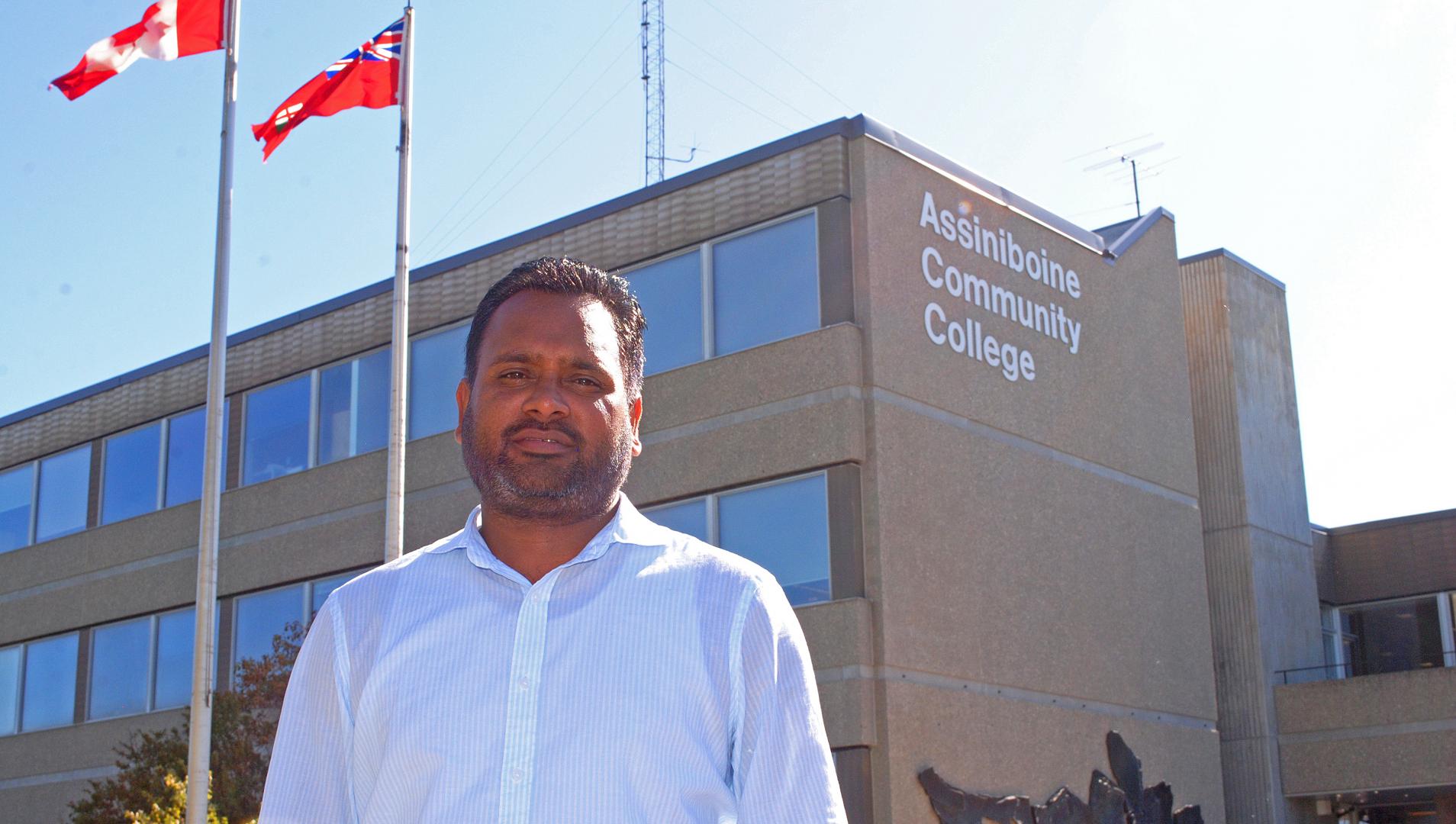Agricultural research essential to learning
December 12, 2019
Learning from others’ work is central to any education, but this Assiniboine Agribusiness instructor wants to see students contribute original research to agriculture.
Dr. Baljeet Singh has been working to make this opportunity a reality, with at least three research projects set to begin early next year.
“They can see how cool it is,” he said of students taking part in agricultural research. “They’re outdoors all the time and it’s not just books and staring at a computer screen all day.
I think a change in the workplace environment and hands-on learning are the things that attract students.
One of the research projects is with Manitoba Pulse and Soybean Growers (MPSG). Dr. Singh has been working with MPSG to conduct plant disease and insect pest damage surveys for soybeans and is optimistic about expanding the research capacity to agronomic research trails next year.
Another project is a collaboration between Assiniboine and Brandon University. Researchers will work to develop diagnostic tools for soybean diseases and pathogen complexes.
The third project is with Ag-Quest in Minto, where researchers will work with endophytes to determine what fungal strains can be used to control plant pathogens.
With all of these projects, Dr. Singh said that he plans to incorporate as much student involvement as possible, although expanding capacity in this area can be a slow process.
There’s tough competition out there, he said, with well-established research institutions typically getting potential projects. Dr. Singh has kept his finger on the soybean and pulse industry by writing proposals and initiating collaborations to slowly increase research capacity.
With at least three projects planned for next year, he said they’re about to hit the first tipping point.
“There’s a need to teach the young generation about the importance of agricultural research,” said Singh, adding that in a climate of ever-changing technology and agricultural needs, Assiniboine must remain on the cutting edge.
“I am slowly expanding and conscious at the same time that I don’t want to be involved everywhere and not end up doing well. … I take small bites at the beginning and once I’ve developed an appetite I will expand more.”
The practicality of the research Dr. Singh is aspiring to bring to Assiniboine is offering real solutions to local agricultural needs.
This is a reflection of his lifelong focus on gaining practical skills. Dr. Singh grew up on a small family farm in India.
Early on, his father had it in his mind that Singh would become a medical physician. His grandmother had died as a result of a brain hemorrhage when nobody around had the knowledge to help quickly, so a doctor in the family seemed like a solution to such concerns.
“He pushed me a lot on that, but it wasn’t there,” Singh said. “I wasn’t able to become a doctor, but I slowly became a plant doctor.”
He had a base knowledge of agriculture, which he expanded through post-secondary education in both India and Canada. He worked for two years as a research fellow at Punjab Agricultural University in India focusing on pesticide residue analysis. While at the University of Manitoba, he graduated with a Ph.D. in Soil Science.
As an instructor at Assiniboine, he said that he strives to pass his passion for agriculture to his students. Even before his dream of having students take part in research projects is realized, he has been infusing his lectures with as much field knowledge as possible. After all, he said, that’s what their work will come down to.
I want them to think more practical. I want them to be able to apply the lesson learned in class to a real-life scenario.
Students will have more of these practical opportunities next year, and a good foundation for more research opportunities.




